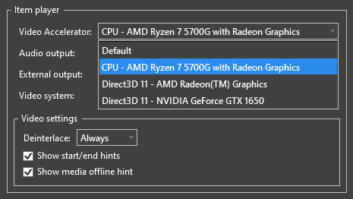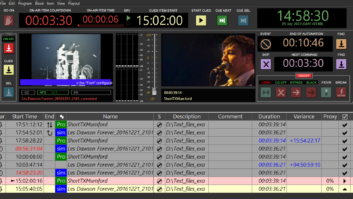
While it is possible to extract richer and richer metadata from a production to feed archive, search or second screen apps, there are risks in this approach unless the basics are right first, writes Adrian Pennington. “Simplicity is the most important thing for producers to understand,” advised Lewis Kirkaldie, product manager at digital media workflow specialist Cinegy. “If a production is mandated to capture various and complicated data such as geotagging by GPS or baking production and commissioning credentials onto recording media, then it will likely lead to problems. “There does need to be caution that metadata doesn’t overload a production,” he said. “What is captured needs to be of value.” This requires going back to the basics: ensuring that timecode, date and camera is identified. “The one thing that producers on reality shows dread above all is when clips are not identified by date. That information is critical. For example on The Apprentice [which uses Cinegy tools] where the teams are split into separate cars and separate stories, the post operation will be required to reconstruct what happened on a particular day, often needing to refer back to a specific incident, from thousands of hours of rushes. The appropriate metadata management needs to be in place to handle that,” he added. “If the camera operator has not set the camera identifier or fails to set a clip name correctly then you have to spool through hours of rushes for clues. It’s possible for a crew member to pick up a different camera from the stores and forget to set it to the correct clip identifier for that day.” Problems are exacerbated by the lack of a metadata standard common to recording media used by different camera manufacturers. “When time is of the essence in turning around programmes to air then you cannot afford these kind of basic errors,” said Kirkaldie. Fast turnaround equipment specialist EVS is also seeing common pitfalls when handling metadata and arranging project workflows. “Even as the broadcast industry moves to IP-based workflows the mindset of some people in production is still old fashioned,” said EVS product manager Jérôme Wauthoz. “They may be working in a fully tapeless environment, but they are taking notes as things happen and, because they are sitting in close proximity to the editor, simply talking to them to pass information across.” The problem is that as soon as the event is over the metadata (verbal and print) is lost. “If that is a worst case scenario, there are also those who do understand the benefits of metadata to produce better content more quickly, but the problem is that the metadata workflow is not organised enough,” said Wauthoz. “People are not trained to apply the metadata appropriately or consistently throughout the production process.” That being said, there are various broadcasters who are reaping the benefits of a fully-organised metadata workflow, including BBC Sport, HBS and Sky News amongst others. www.cinegy.comwww.evs.tv







